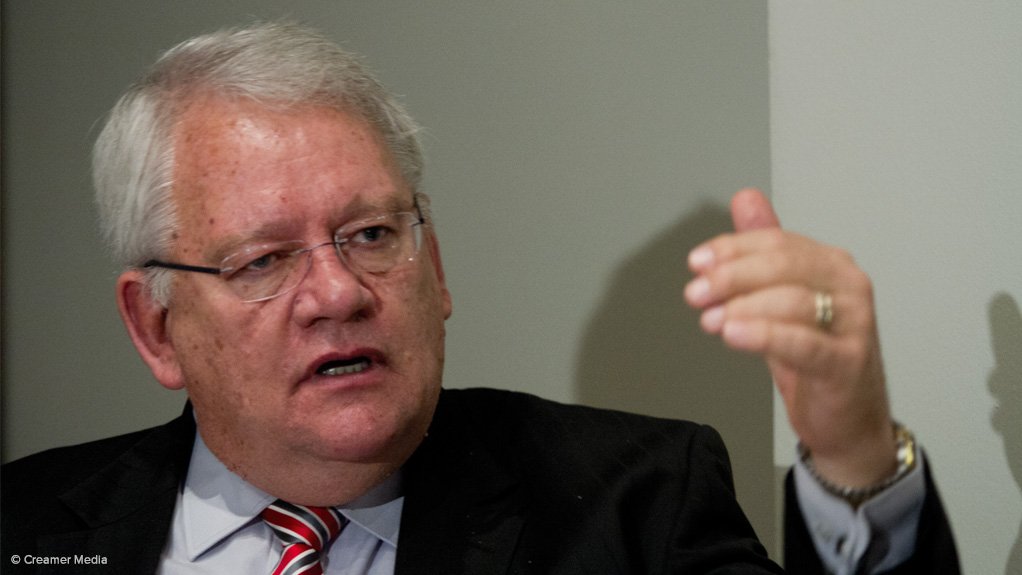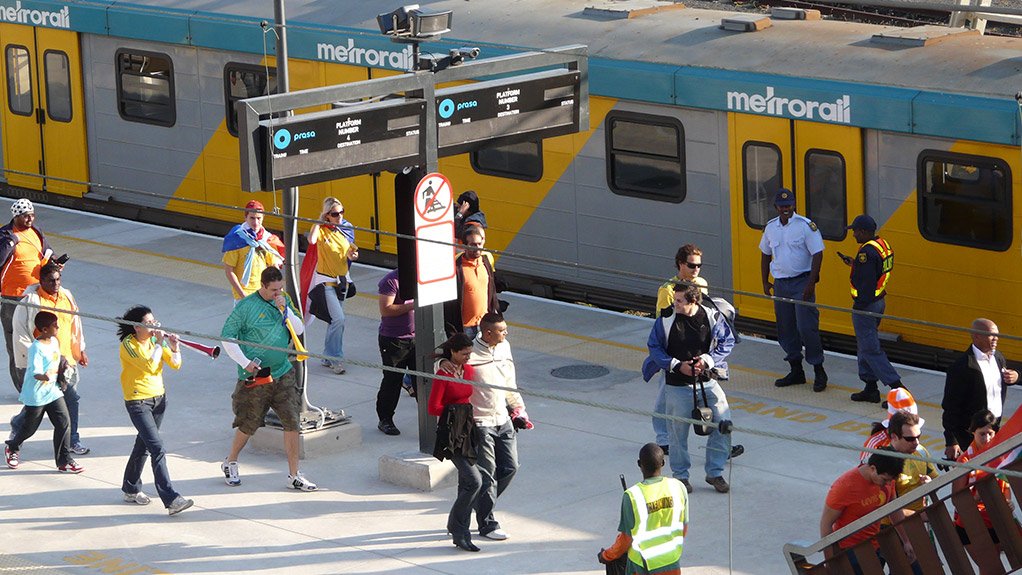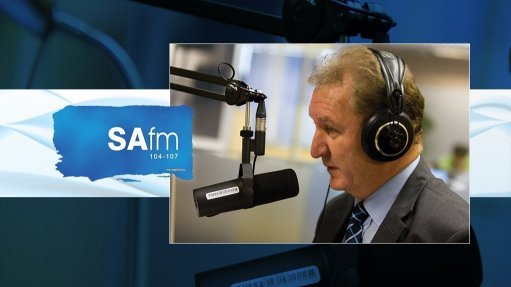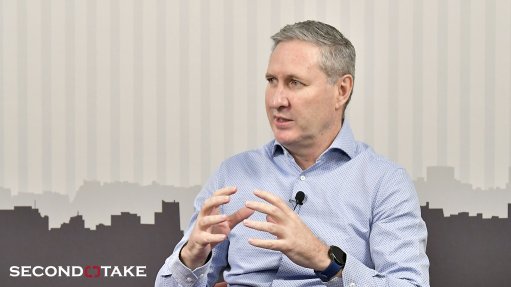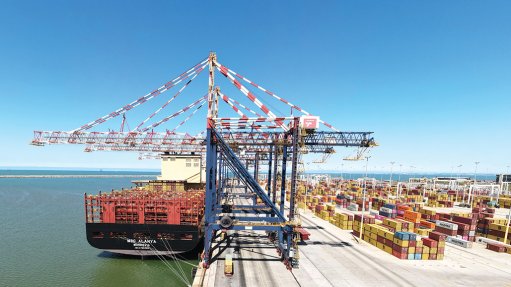Van der Merwe unpacks Metrorail deterioration
As discussions continue on the devolution of South Africa’s passenger rail network, particularly with Cape Town having started a feasibility study on the Passenger Rail Agency of South Africa (PRASA) rail system in the province in July, Gauteng Transport Authority (TAG) CEO Jack van der Merwe unpacks how Metrorail has declined in recent years.
The newly published White Paper on National Rail Policy allows for the devolution of PRASA’s passenger rail systems to local councils through a process that includes a feasibility study.
According to a National Household Travel Survey, the number of trips in South Africa on a daily basis is 41.7-million, of which 41.7%, or 17.4-million trips, is undertaken by way of walking, 26%, or 10.7-million trips, by private car and just under 30%, or 12.9-million, by public transport.
Of the 12.9-million people that use public transport, 83% of them, or ten-million people, use minibus taxis; 14.6%, or 1.8-million people, use buses; and 2.4%, or 300 000 people, use trains.
Looking at work trips, Van der Merwe reports, citing the survey, that there are about 16.6-million work trips in the country happening on a daily basis, of which the majority happen in Gauteng and by way of private car use.
The 35% of people in the country that make use of public transport for work trips, do so mostly by way of minibus taxis at 80.2%, followed by buses at 16.6% and train by a stark 3.2%. This compares with 67% of work trips through minibus taxis, 19.5% through buses and 12.9% through trains in 2013, showing the rapid decline in passenger rail transport.
Van der Merwe explains that, with the drastic reduction in Metrorail services, commuters have been forced to use other modes of public transport, often at more expensive rates. For example, the monthly average fare for minibus taxis has increased from R581 to R960 between 2013 and 2020 and likely more up to 2022.
“This is why the poorest of the poor have resolved to walk to work and elsewhere,” Van der Merwe points out.
He notes that Metrorail has lost 574-million passengers on the rail network since 2019, owing to the unpunctuality, unpredictability, unavailability and unreliability of the entity’s service.
Van der Merwe points out that Metrorail had an average lateness of 42 minutes, and that is if a train shows up, in March 2020. This while Metrorail had a 40% train availability rate in March 2020, right before Covid-19 hit local shores.
He reports that only the Western Cape and Gauteng reported household train use rates just above 3% in 2020, compared with a rate of about 10% in 2013. This while the average time of a trip on a train has increased by 45% over the past eight years from 74 minutes to 107 minutes.
Cape Town Mayor Geordin Hill-Lewis told Engineering News Online earlier this year that, in 2019, Metrorail was operating 444 weekday trips in Cape Town, which fell to 270 in 2020 before the pandemic, and around 150 weekday trips currently.
He says the mismanagement of Metrorail in the past decade has left Cape Town with just 33 operational train sets in Cape Town as of 2020, compared with 95 in 1995.
In Gauteng, Metrorail operates 16 rail corridors, supported by 149 active train stations. There are an additional 87 stations that are classified as half stations owing to them not having ticketing facilities.
Van der Merwe explains that government has suggested that Metrorail’s Gauteng operations be devolved to the TAG; however, for this to be done, an independent due diligence must be undertaken to determine the magnitude of the damage to the rail infrastructure and rolling stock of the entity during the pandemic.
He adds that due diligence on the actual operations that will be transferred to the province will also need to be done, including on staff, skills, payroll, new and old rolling stock, rail infrastructure and security contracts, among other aspects.
Van der Merwe says that, before Metrorail can de devolved in any manner, key pieces of policy will need to be finalised first. These include the Draft White Paper on Rail Policy, the National Land Transport Amendment (NLTA) Bill and a Devolution Policy.
For one, the NLTA has been disputed on its Constitutionality by the President, and has been sent back to Parliament for reconsideration, after first being introduced in Parliament in September 2016.
Comments
Press Office
Announcements
What's On
Subscribe to improve your user experience...
Option 1 (equivalent of R125 a month):
Receive a weekly copy of Creamer Media's Engineering News & Mining Weekly magazine
(print copy for those in South Africa and e-magazine for those outside of South Africa)
Receive daily email newsletters
Access to full search results
Access archive of magazine back copies
Access to Projects in Progress
Access to ONE Research Report of your choice in PDF format
Option 2 (equivalent of R375 a month):
All benefits from Option 1
PLUS
Access to Creamer Media's Research Channel Africa for ALL Research Reports, in PDF format, on various industrial and mining sectors
including Electricity; Water; Energy Transition; Hydrogen; Roads, Rail and Ports; Coal; Gold; Platinum; Battery Metals; etc.
Already a subscriber?
Forgotten your password?
Receive weekly copy of Creamer Media's Engineering News & Mining Weekly magazine (print copy for those in South Africa and e-magazine for those outside of South Africa)
➕
Recieve daily email newsletters
➕
Access to full search results
➕
Access archive of magazine back copies
➕
Access to Projects in Progress
➕
Access to ONE Research Report of your choice in PDF format
RESEARCH CHANNEL AFRICA
R4500 (equivalent of R375 a month)
SUBSCRIBEAll benefits from Option 1
➕
Access to Creamer Media's Research Channel Africa for ALL Research Reports on various industrial and mining sectors, in PDF format, including on:
Electricity
➕
Water
➕
Energy Transition
➕
Hydrogen
➕
Roads, Rail and Ports
➕
Coal
➕
Gold
➕
Platinum
➕
Battery Metals
➕
etc.
Receive all benefits from Option 1 or Option 2 delivered to numerous people at your company
➕
Multiple User names and Passwords for simultaneous log-ins
➕
Intranet integration access to all in your organisation



